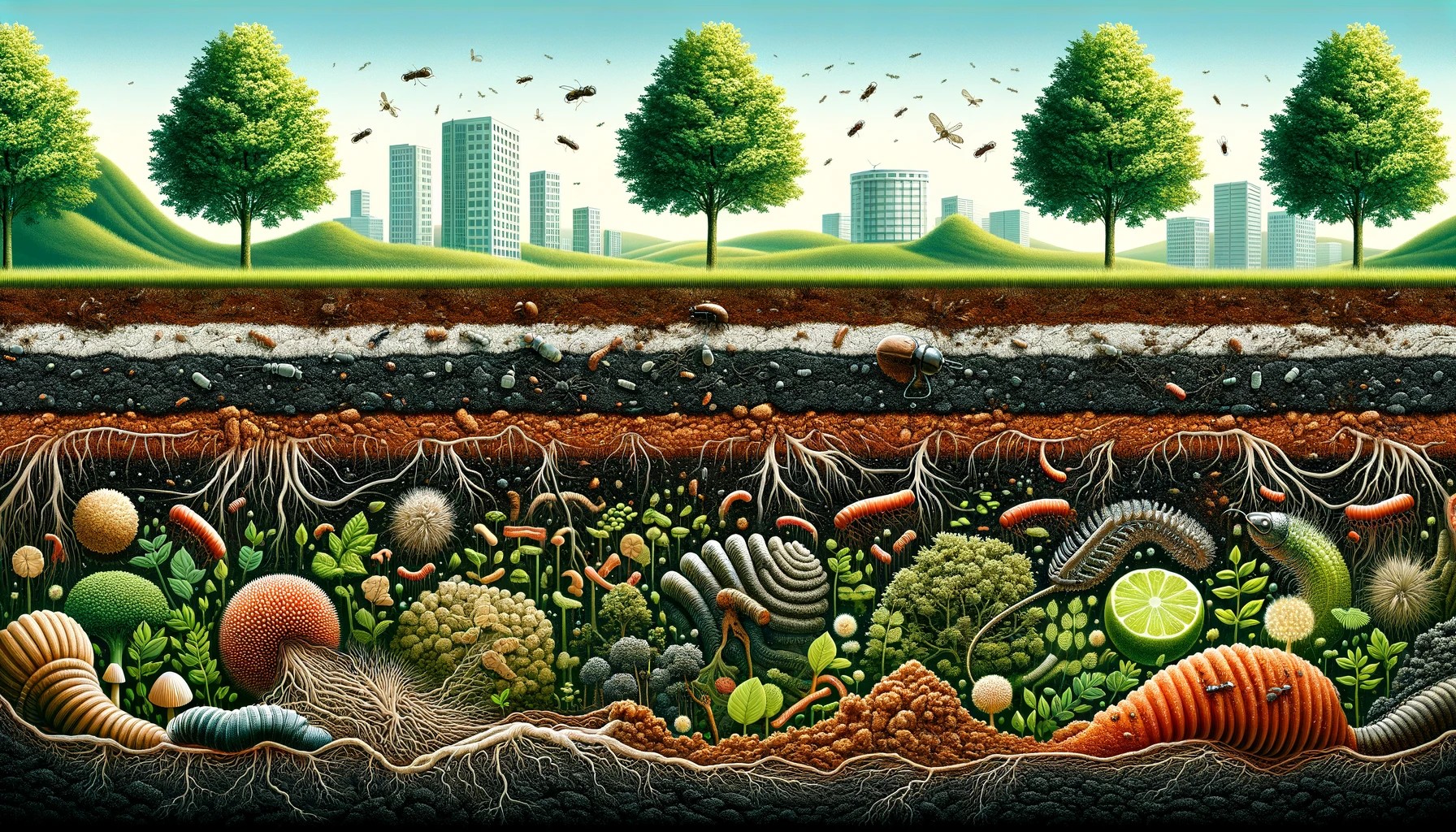Before digging in, I want to define and describe soil. Soil, the nursery bed of life, is made of only two things: tiny pieces of rocks of various sizes and types of organic material—dead plant material, or humus. In the wild it usually also contains bones from animals and other organic molecules. It also contains a city of tiny microscopic life, bacteria by their billions, fungi digesting plant material, and lots of invertebrate animals—insects, beetles, centipedes, worms and many others. Soil is not just dirt; it is alive, a thriving community. Plants grow in their season, then die back and drop to earth where they are welcomed each year into the process. As they live and grow, they extract essential elements from the soil. Later, after decomposition in the soil, most is returned. The years and millennia circle around. A complete, lets say nearly closed system that is self perpetuating.
Calgary is situated in the black soil zone in Alberta. Black soil is richer than brown soils, with more life and nutrients. The average natural soil thickness in our area is about 15 inches; below that is the clay layer. That is about an inch added every thousand years since the ice sheet retracted. This soil depth and type is only found in undisturbed soils that have never been dug, farmed or changed in any way. It is extremely valuable, for it will grow food. Most plants need a variety of essential elements, a slightly different recipe for each species from the soil to maintain health. There are approximately 20 elements considered essential for plant life. This would closely mimic your own nutrient needs. We call them vitamins; most of the world, when thinking of plants, call them fertilizer. But really they are vitamins to plants also. Just as in your own diet, vitamins are not food, but the essential elements you need to live. So it is the same for plants—fertilizer is not plant food. The marketing genius who came up with “weed and feed” really hit home, but it's a lie. Fertilizers contain no energy. Plant food is always only one thing, and they make all they need. Yup, sugar. Nitrogen is the element used the most by plants and performs a multitude of functions in the plant's physiology. In higher doses, it can create a situation inside the plant that pushes growth. This is not always a good thing. Great for grass and having the best lawn on the block, but needs mowing twice a week. It can also push trees to grow beyond their natural measures, which can form weak stems. All plants, trees included, have hormones, growth regulators that take care of the job nicely. Over-fertilizing can also contribute to poor plant water relations. Fertilizers act like salts, and can hold or bond with lots of water molecules that otherwise would be free to be extracted by a searching, hard-working root system.
As mentioned above, marketing and sales of fertilizers are so out of hand that most people have been led to believe that they aren't doing a good job if they don't fertilize every year, at least once for the trees and several times for the lawn. This is all part of a general North American thinking that keeps you active as a consumer, always spending. I myself have never fertilized a tree. I have fertilized some house plants that had lived long enough to start depleting the nutrient reserves in their pots. The slight colour change of the leaves, a yellowing, told me so. This is called chlorosis. I guess I should repot and change some soil. Colour change is something to look for in your trees. Look around your neighbourhood, know what the normal colour of your species of tree should be. If it is yellowy, and getting more so each year, then yes, that tree needs some nutrient it is not getting. In most cases, our trees are planted in the lawn, surrounded by grass. When you fertilize the lawn you, fertilize the trees too; there is nothing that can stop the fertilizer from also interacting with the roots of your tree, sometimes on the surface or just below the turf.


